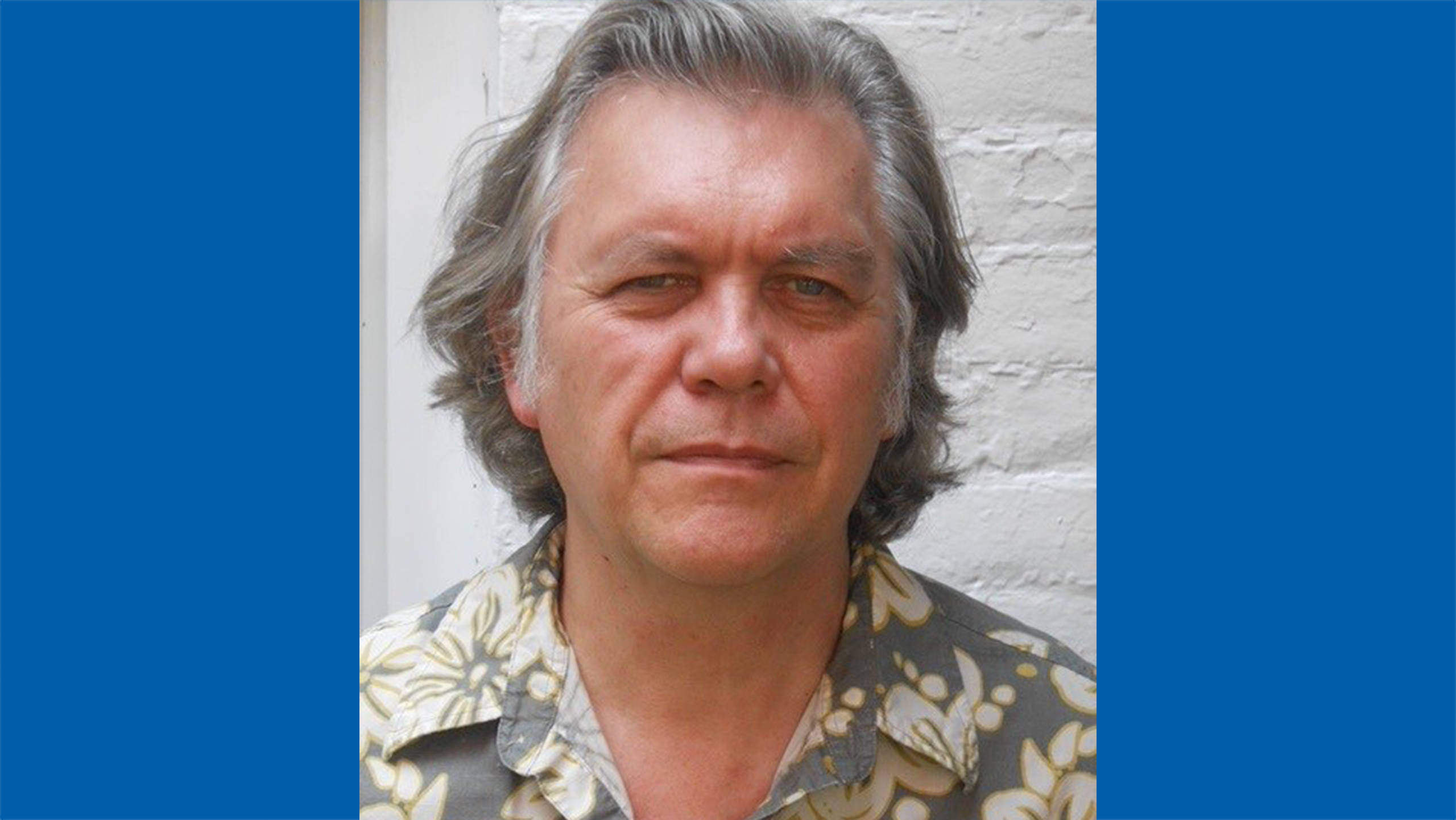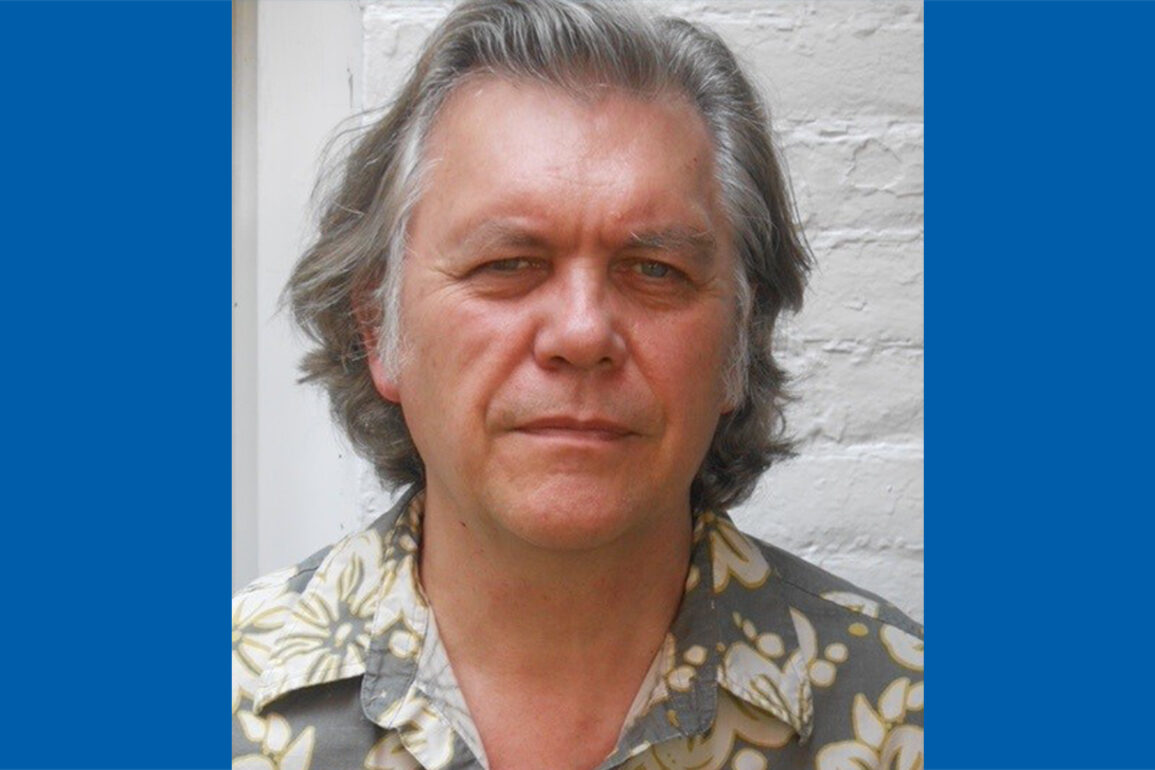
Professor David Brotherton (GC/John Jay, Sociology, Criminal Justice, Urban Education, International Migration Studies) won the 2023 Lifetime Achievement Award from the American Society of Criminology Division on Critical Criminology & Social Justice for his distinguished scholarship, teaching, and service in critical criminology, an area of criminology that addresses structural inequalities in the criminal justice system.
Learn More About the Ph.D. Program in Sociology
“Dr. Brotherton’s career accomplishments reflect a critical criminology absolutely devoted to seeing the humanity in the people whose lives our research reflects, as well as the violations of humanity in the acts of the powerful who create conditions of despair and desperation,” the selection committee noted in naming Brotherton. “His research promises to remain the most influential and impactful argument for a critical perspective in gang studies for generations to come.”
Brotherton, a prolific author, is known for his studies of street gang culture, youth resistance and marginalization, and U.S. policies on immigration and deportation. His many books include Youth Street Gangs: A Critical Appraisal; Banished to the Homeland: Dominican Deportees and Their Stories of Exile, co-authored with Professor Luis Barrios; and Keeping Out the Other: A Critical Introduction to Immigration Enforcement Today, co-edited with Philip Kretsedemas.
As part of his research and advocacy, he organized conferences on street youth research in New York and Brazil, and he co-organized conferences in the Caribbean and New York on the effects of U.S. deportation.
He is the founding co-director of the Social Change and Transgressive Studies Project at John Jay College, co-founder of the Social Anatomy of a Deportation Regime (SADR) research working group at John Jay, and adviser to the Transgang Project in Europe.
He has won grants from the Harry Frank Guggenheim Foundation for a study of the legalization of street gangs in Ecuador and the National Science Foundation for the Criminal Deportation Pipeline. His other awards include the Guggenheim Distinguished Scholar Award, the Praxis Award for Contribution to Social Justice, and the Critical Criminologist of the Year Award from the American Society of Criminology
“I’ve always tried to create a social science that impacts people, especially those with the least power and who may be the most stigmatized,” Brotherton said. “To be recognized for this commitment by my peers is very rewarding and I am extremely appreciative of all who have supported me. When you swim against the tide you don’t always get a pat on the back in this profession.”
In light of his recent award, he spoke to the Graduate Center about his research and the change he hopes it makes.
The Graduate Center: What led you to study gangs, particularly transnational gangs?
Brotherton: I was born in an area of London renowned for its deviance. I grew up within and around a lot of working-class youth subcultures that were often sensationalized in the media, what we sometimes call “moral panics.” I later organized among these youth to raise political consciousness and fight for a socialist society. Fast forward a few years and I’m living in San Francisco and working as a high school teacher in the Mission district. A number of my students were in local street gangs; many were migrants from Central America. With my earlier background organizing such youth always from the standpoint of empowerment rather than condemnation, I developed a rapport with them. This helped my teaching as they taught me a lot about their lives. This connection also helped them to see something positive in education and schooling. After a short while, I decided to go back to graduate school and finish my Ph.D., focusing on why kids from poor and under resourced backgrounds would “drop in” to school rather than “drop out.” This turned into a study of street gang members of school age and how they developed their own meaning systems and forms of street politics. This was during the crack era when everyone was studying gang violence, etc. I, in turn, was studying the possibility of gang transformation.
Learn More About the Ph.D. Program in Criminal Justice
GC: What social change are you hoping to see come out of your recent NYC-based project, the Deportation Pipeline Project?
Brotherton: Everything we can do to educate folks about the nature and extent of this highly punitive system of migration control we have adopted, the better. The more we can do cutting-edge empirical work in this area and train graduate students in the field, the more we help create different narratives that challenge normative ideas about assimilation and integration. Right now, we trap non-citizen residents of the U.S. in a net of crimmigration, i.e., the social control system that combines the laws and practices of criminal justice with immigration regulation. We call it the social anatomy of deportation with its state-financed tentacles that spread throughout migrant communities. This is just another example of how social problems in the U.S. became crime problems with horrendous consequences both intentional and unintentional. We need to develop different theories that can speak to the global shifts that are happening, producing autonomous flows of migration as people seek safety, hope, and the means to live not die slowly or rapidly.
Learn More About the M.A. Program in International Migration Studies
GC: How did your personal experience growing up in a blue-collar community in the East End of London and then moving to the U.S. influence your work in academia and in the global community?
Brotherton: I grew up in a very tight-knit community, a kind of urban village, that was totally working class. I didn’t know anyone who lived in a private house, for example. My mother and father both left school at 14, and I’m fifth generation from this area in the inner city. Life was very communal, and people were proud of their history, struggling against adversity. But with the class nature of the area, there was a great emphasis on social life and lots of laughter. I also lived in an area famous for its labor activists and struggle for women’s suffrage.
I went into working-class jobs when I left school at 18. Later, at age 25, I went to the University of York in northern England as a “mature student.” I took full advantage of learning and just ate up the classes and seeing my earlier life and environment through the eyes of social science. I had all these experiences and family history I needed to understand. I was a very motivated student, and in my first year, I got a scholarship to come to the U.S. and study at the University of California. I ended up at UC Santa Barbara and met some very influential scholars. I spent a year there then returned to the U.K. to finish my B.A. degree but the new Conservative government under Margaret Thatcher took an axe to social science education at the graduate level, so I returned to the U.S. I then spent some time as an undocumented worker and was threatened with deportation. All these experiences set me up for the study of sociology and eventually criminology. Both my training and history ensured that I had to approach my disciplines through a critical and global lens with a strong emphasis on culture and theory.
I also became fascinated with Latin America after I wrote my master’s thesis on Chicano identity. At that point, I decided to take a break from my studies and moved to Argentina with my wife not long after the restoration of democratic rights. We spent a year traveling through South and Central America, seeing and experiencing different cultures and societies in transition, including Chile under fascism and Nicaragua under the Sandinistas. I’ve continued to be connected to various struggles in the global south ever since.
Learn More About the Ph.D. Program in Urban Education
GC: What are your current research projects?
Brotherton: I’m finishing the first book on the practice and theory of credible messenger interventions or what’s called “transformative mentoring.” I spent several years with a research team studying the transformation of the juvenile justice system and its institutions in Washington, D.C. I’m evaluating two interventions using credible messengers in Washington Heights and East New York and some other Latinx communities. These are aimed at reducing recidivism as well as youth-related violence. My argument is that you can’t approach anti-violence programs simply aiming to control behavior, you have to deal with consciousness and the root causes of crime. Another research project focuses on the extraordinary rise of violence in Ecuador where I’ve been connected for many years since they adopted a national gang legalization policy influenced by my work in New York City in the late 1990s. Finally, I am involved in a very radical project in Europe looking at the role of solidarity and migrant resistance as folks come from the global south into EU countries. I try to link all these projects to our Social Change and Transgressive Studies Project at John Jay.
Published by the Office of Communications and Marketing
This post was originally published on this site be sure to check out more of their content.







